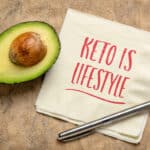The Role of Hydration and Electrolytes on the Keto Diet
The keto diet has gained immense popularity in recent years, thanks to its potential benefits for weight loss, mental clarity, and overall health. However, as with any diet, it’s essential to understand the role of hydration and electrolytes to ensure you’re getting the most out of your keto journey. In this article, we’ll dive into the importance of staying hydrated, the role of electrolytes, and how to maintain a proper balance while following the keto diet.
Why is Hydration Important on the Keto Diet?
Hydration is crucial for overall health, regardless of the diet you’re following. Water plays a vital role in various bodily functions, including digestion, circulation, temperature regulation, and waste elimination. However, hydration becomes even more critical when you’re on the keto diet. Here’s why:
1. Increased water loss: When you start the keto diet, your body begins to deplete its glycogen stores. Glycogen is a form of stored carbohydrates that binds with water molecules. As your glycogen stores decrease, your body also loses water, leading to increased water loss and a higher risk of dehydration.
2. Increased urination: The keto diet can cause a diuretic effect, meaning you may find yourself urinating more frequently. This increased urination can lead to a loss of water and electrolytes, making it essential to replenish both regularly.
3. Reduced water retention: A high-carb diet can cause your body to retain more water. When you switch to a low-carb, high-fat diet like keto, your body retains less water, making it even more important to stay hydrated.
What are Electrolytes and Why are They Important?
Electrolytes are minerals that carry an electric charge and play a crucial role in maintaining the balance of fluids in your body. They also help regulate muscle contractions, nerve function, and pH levels. Some of the key electrolytes include sodium, potassium, magnesium, and calcium.
On the keto diet, electrolyte balance becomes even more critical due to the increased water loss and diuretic effect mentioned earlier. When you lose water, you also lose electrolytes, which can lead to an imbalance and cause symptoms like fatigue, muscle cramps, dizziness, and headaches. These symptoms are often referred to as the “keto flu.”
Maintaining Proper Hydration and Electrolyte Balance on the Keto Diet
To ensure you’re staying hydrated and maintaining a proper electrolyte balance while on the keto diet, follow these tips:
1. Drink enough water: Aim to drink at least half your body weight in ounces of water daily. For example, if you weigh 150 pounds, you should drink at least 75 ounces of water per day. This amount may vary depending on factors like your activity level, climate, and individual needs.
2. Consume electrolyte-rich foods: Incorporate foods high in electrolytes into your keto diet. Some excellent keto-friendly options include avocados (potassium), leafy greens (magnesium), nuts and seeds (magnesium and calcium), and bone broth (sodium).
3. Consider electrolyte supplements: If you’re struggling to get enough electrolytes from your diet, consider using an electrolyte supplement. Look for one specifically designed for the keto diet, as these will typically have the right balance of sodium, potassium, and magnesium.
4. Listen to your body: Pay attention to how you feel and adjust your water and electrolyte intake accordingly. If you’re experiencing symptoms like muscle cramps, fatigue, or dizziness, it may be a sign that you need to increase your water and electrolyte consumption.
5. Don’t overdo it: While it’s essential to stay hydrated and maintain a proper electrolyte balance, it’s also possible to overdo it. Consuming too much water can lead to a condition called hyponatremia, which occurs when your sodium levels become dangerously low. To avoid this, be sure to balance your water intake with electrolyte consumption.
Conclusion
Staying hydrated and maintaining a proper electrolyte balance is crucial for overall health, especially when following the keto diet. By understanding the importance of hydration and electrolytes, incorporating electrolyte-rich foods, and listening to your body, you can ensure you’re getting the most out of your keto journey. Remember, a well-balanced keto diet is not just about cutting carbs and increasing fats; it’s also about taking care of your body’s essential needs.
In summary, hydration and electrolytes play a vital role in the success and overall health of those following the keto diet. By staying informed and taking the necessary steps to maintain proper hydration and electrolyte balance, you can enjoy the benefits of the keto diet while minimizing potential side effects.



